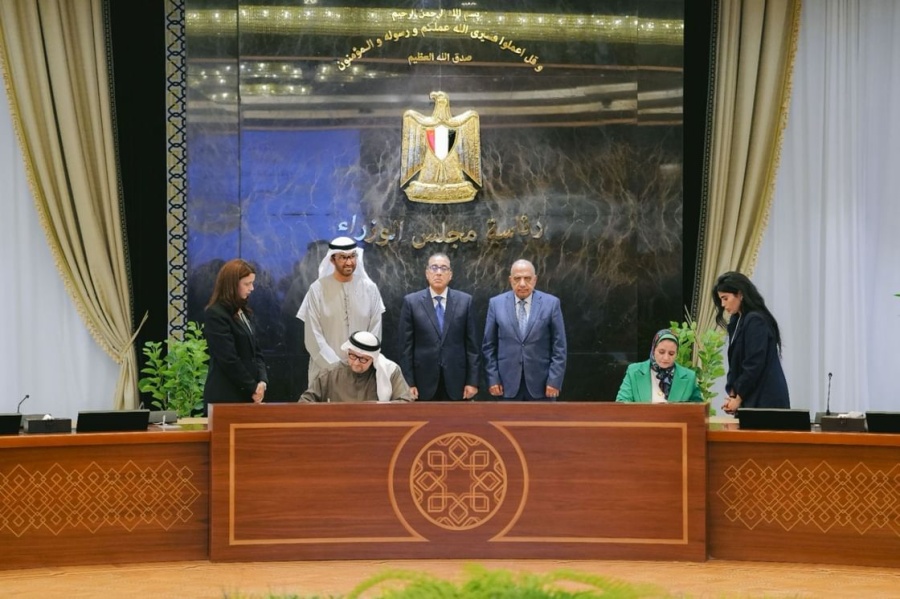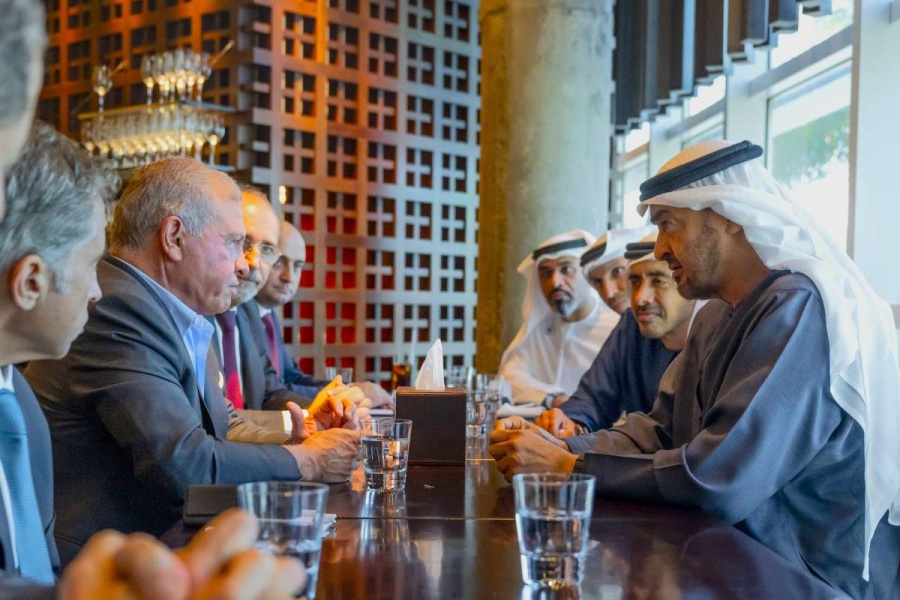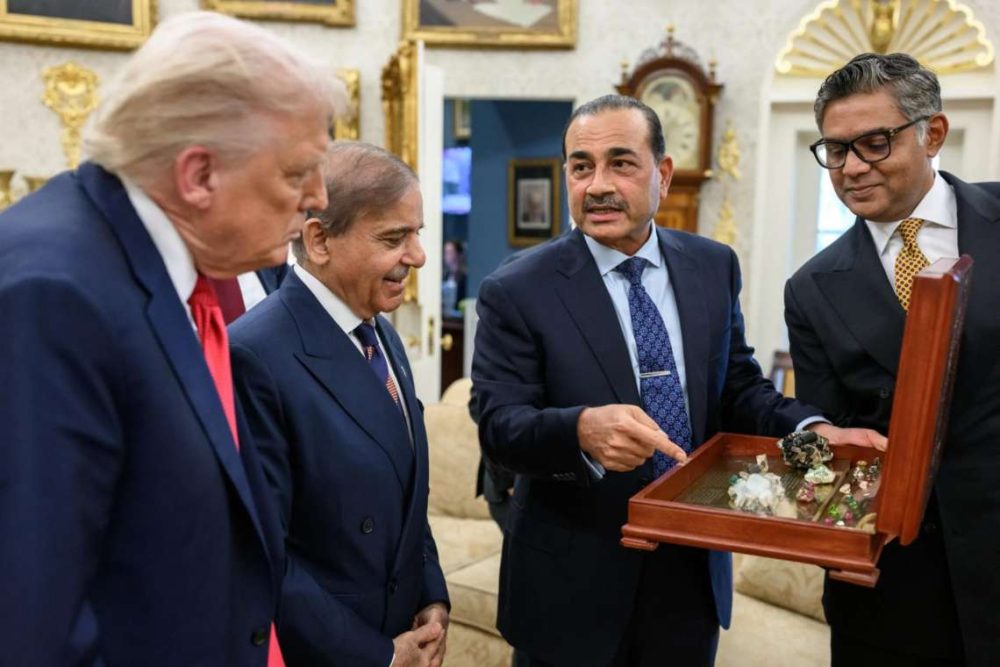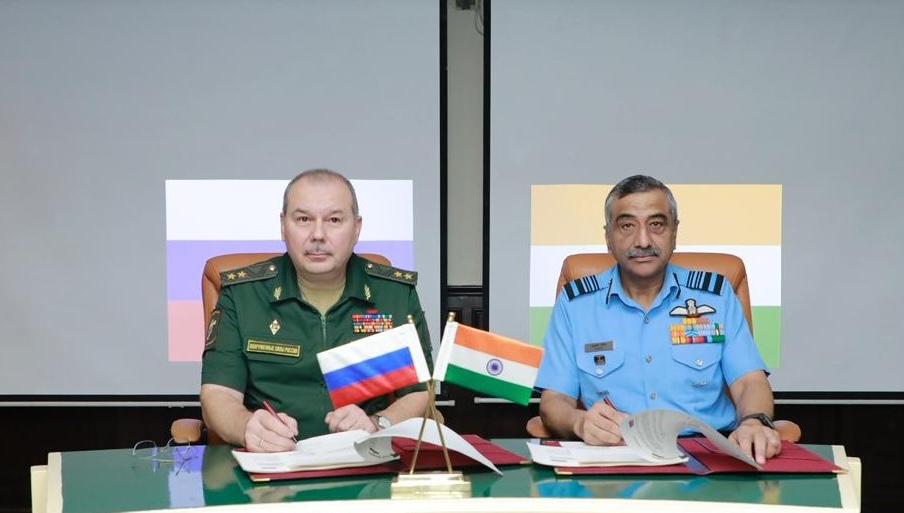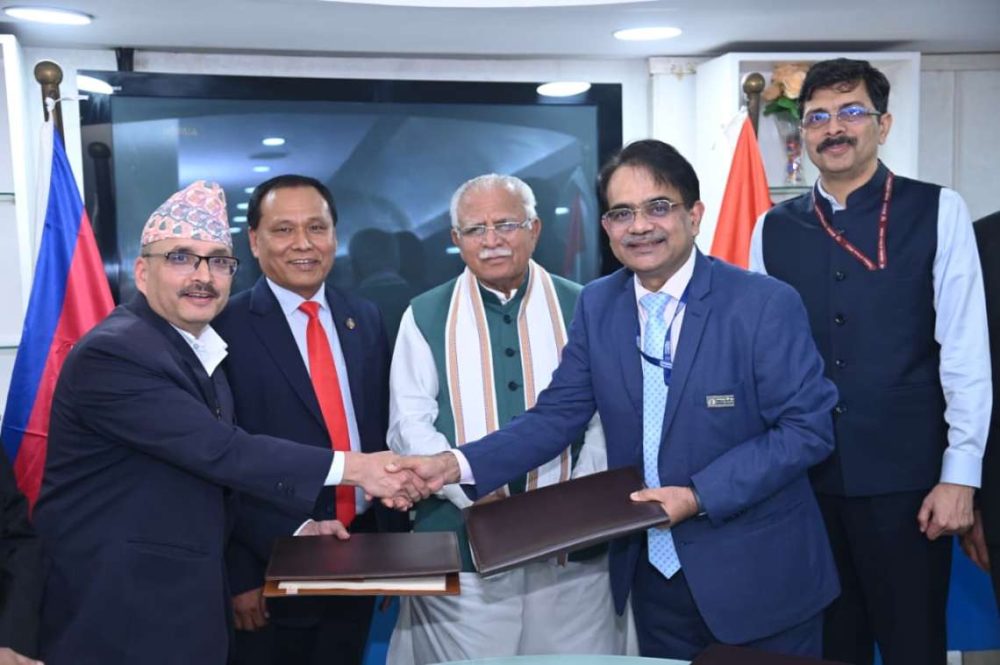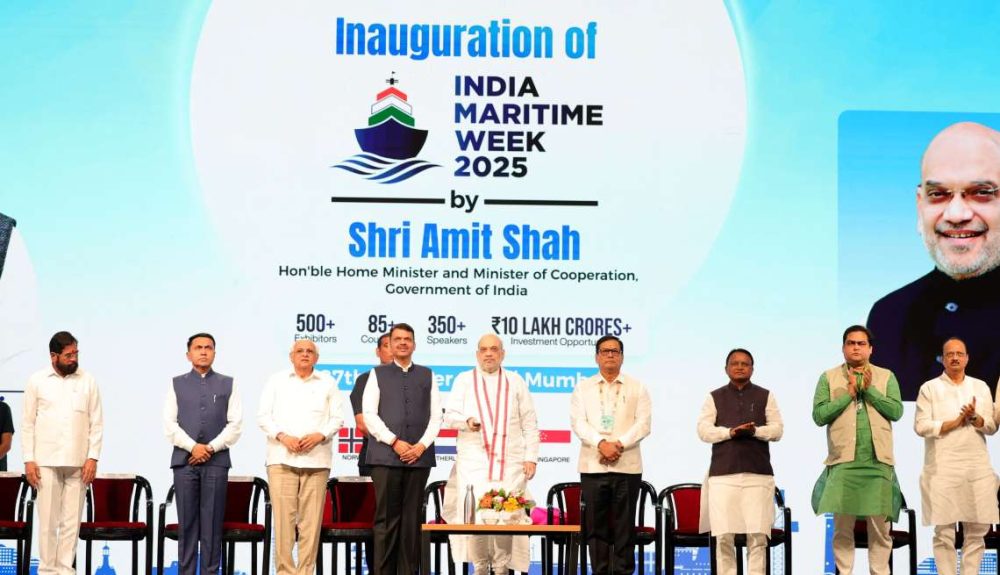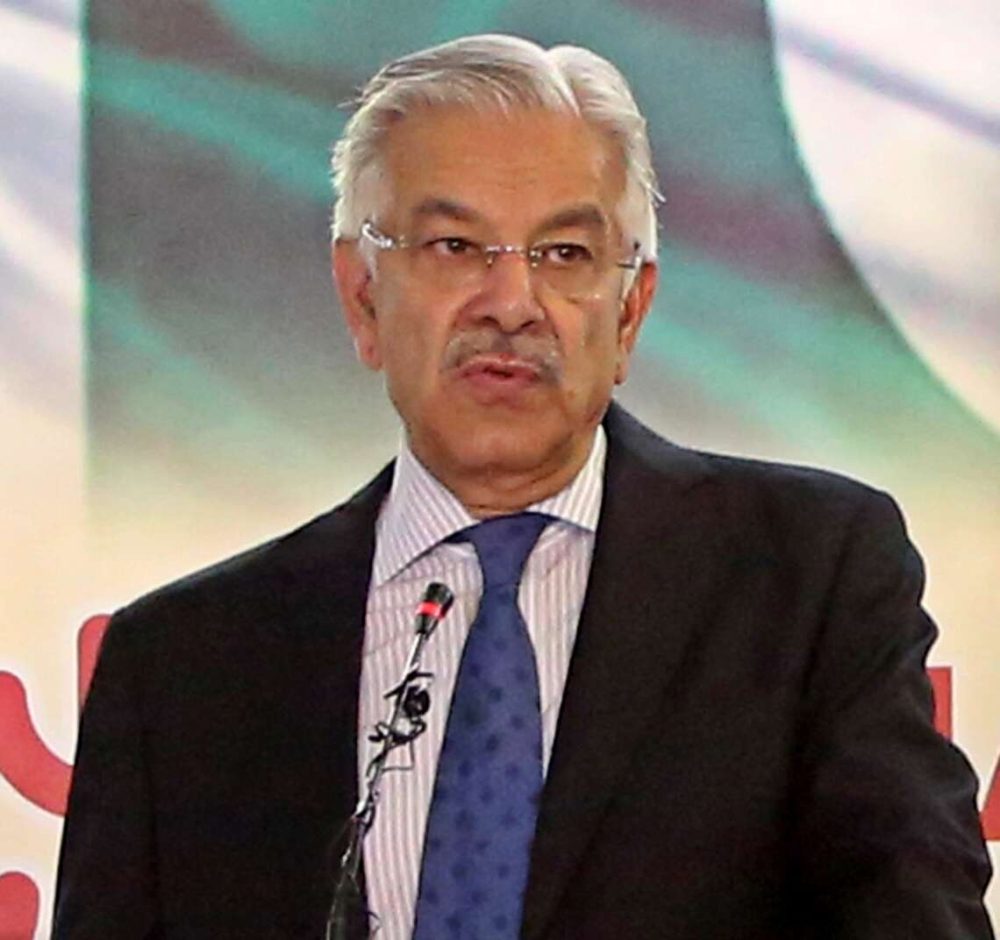These agreements align with the two countries’ shared vision to promote sustainable economic growth and create new opportunities for industrial and technological investment…reports Asian Lite News
Dr. Mostafa Madbouly, Prime Minister of Egypt, Dr. Sultan Al Jaber, Minister of Industry and Advanced Technology, Kamel Al Wazir, Deputy Prime Minister for Industrial Affairs and Egypt’s Minister of Industry and Transport, Dr. Mahmoud Esmat, Egypt’s Minister of Electricity and Renewable Energy, attended the signing ceremony of Memoranda of Understanding (MoUs) at the headquarters of the Egyptian parliament at the New Administrative Capital.
The signing ceremony was also attended by Colonel Dr. Bahaa El-Ghannam, Executive Director of the Future of Egypt for Sustainable Development Authority, Mariam Khalifa Al Kaabi, UAE Ambassador to Egypt, and Syed Basar Shueb, Board Member, CEO and Managing Director of International Holding Company (IHC).
These agreements align with the two countries’ shared vision to promote sustainable economic growth and create new opportunities for industrial and technological investment in accordance with their developmental aspirations and plans. The agreements aim to enhance strategic partnerships in key sectors, including industry and renewable energy generation, as well as the development of a joint UAE-Egypt industrial zone in East Port Said.
Dr. Al Jaber conveyed the greetings of the UAE’s leadership to Egypt, emphasising the UAE’s commitment to exploring cooperation and joint investment opportunities in critical sectors, including advanced and sustainable industries, infrastructure, and renewable energy. These initiatives aim to foster growth and prosperity for both nations, strengthen supply chain sustainability and resilience, and enhance self-sufficiency.
The MoUs include agreements to establish two plants – one for solar cells and another for solar panels, each with a capacity of 2 GW – as well as a battery energy storage facility with an initial capacity of 2 GW.
Additional MoUs focus on clean energy initiatives, including the study of a 900 MW solar power plant in the Dakhla Oasis and a 300 MW solar plant in Benban, Aswan Governorate, both equipped with energy storage systems. Furthermore, plans include a 3 GW floating photovoltaic solar plant on Lake Nasser and a 2 GW solar plant in northern Naga Hammadi.
The signed projects include the development of a UAE-Egypt industrial zone in East Port Said. The agreement was signed by Ahmed Al Mutawa, Regional CEO of AD Ports Group, and Walid Gamal El Din, Chairman of the General Authority for the Suez Canal Economic Zone (SCZONE).
Covering an area of 20 square kilometres, the land is designed to attract domestic and international investments in key industries such as renewable energy, manufacturing, and advanced technologies. This project aims to enhance the zone’s status as an integrated industrial and logistical hub, contributing to Egypt’s sustainable economic growth.
Another MoU was signed to establish two plants in partnership between Global South Utilities (GSU), and Industrial Modernisation Centre (IMC). One plant is set to produce solar cells with a capacity of 2 GW, and the other will produce solar panels with the same capacity, addressing local market needs and boosting exports to regional and international markets. The agreements were signed by Doaa Salima, CEO of IMC, and Ali Al Shimmari, CEO of GSU.
Two MoUs were also signed for energy storage plants. The first agreement was signed by Salima with Al Shimmari and Dorian Barag, CEO of Weigheng, for a plant with a capacity of 2 GW. The second agreement, also signed by Salima, was made with Khalifa Al Khouri, Chairman of APEX National Investment, and Al Shimmari to explore the establishment of an additional battery storage production facility.
Moreover, Masdar, Infinity Power, and Hassan Allam Utilities signed a principal agreement with the Egyptian Electricity Transmission Company to support Egypt’s renewable energy initiatives. This agreement includes two power purchase agreements for the establishment of solar power plants with a capacity of 1.2 GW and battery energy storage systems with a capacity of 720 MWh, marking a significant milestone in Egypt’s clean energy development.
Masdar signed an MoU with the Future of Egypt for Sustainable Development Authority to develop a floating photovoltaic solar plant on Lake Nasser, with a capacity of up to 3 GW.
The development of this station, anticipated to be the largest project of its kind globally, will benefit from Masdar’s extensive experience in developing floating solar power stations. It is expected to significantly support Egypt’s efforts to rely on sustainable energy solutions.
This initiative aims to capitalise on the vast potential of Lake Nasser to enhance energy security in Egypt and serves as a model for future renewable energy projects in the region.
Masdar signed another agreement with the Future of Egypt for Sustainable Development Authority to establish a 2 GW solar power plant in northern Naga Hammadi.
Egypt’s Prime Minister highlighted that Egypt continues to support the growth of the industrial sector, under the directives of President Abdel Fattah El-Sisi to achieve optimal benefit from Egypt’s capabilities in this sector.
He said, “The growth of this sector is key to achieving the goals of the sustainable development plan, providing the needs of the local market, enhancing national exports, and supporting the national economy.”
He added, “The MoUs contribute to the implementation of Egypt’s Integrated Sustainable Energy Strategy 2035 to meet the growing demand for energy, improve efficiency, shift towards renewable energy, and enhance energy security. They also contribute to the development of clean energy infrastructure, and seek to provide effective solutions for energy storage that meet the needs of the local and regional markets, which contributes to enhancing sustainable development and achieving environmental and economic goals.”
Dr. Al Jaber commented, “In line with the UAE leadership vision, these agreements with Egypt, embody the depth of the close relations between both countries. They reflect a shared vision that emphasises the importance of industrial integration, the growth of the renewable energy sector, and the development of the necessary infrastructure in the East Port Said Industrial Zone to successfully execute these significant projects.”
He added, “The agreements aim to establish industrial projects for renewable energy generation in Egypt, grounded in strategic and economic foundations. They will also create new job opportunities, facilitate the exchange of knowledge and expertise, promote the transfer of global practices, and contribute to reducing carbon emissions while advancing sustainability efforts.”
Dr. Al Jaber highlighted that the East Port Said Industrial Zone benefits from a strategic location that enhances access to global markets, making it well-positioned to attract high-quality investments and foster a conducive investment environment. These advancements strengthen the competitiveness of Egypt’s industrial sector, support its industrial development, and contribute to shared and sustainable economic growth between the two countries.
For his part, Al Wazir highlighted the government’s keenness to enhance efforts to efficiently use new and renewable energy sources to meet the country’s needs. He pointed out the framework of the Ministry’s plan to encourage green industries to represent 5 percent of the GDP by 2030 and deepen local manufacturing of new and renewable energy production requirements, especially solar and wind energy.
He added, “The Industrial Modernisation Centre provides support by providing data, including investment incentives, taxes, and utilities, as well as local supply chains, support in engagements and discussions with potential local partners and suppliers, and support in discussions with relevant authorities regarding the required incentives.”
Dr. Esmat, in turn, said, “The agreements support Egypt’s initiative to enhance reliance on renewable energy solutions, and the first phase is scheduled to start operating and connect to the unified grid in July 2025, while the rest of the project will be completed during the same year. It’s set to increase the capacity of new and renewable energies, reduce reliance on fossil fuels, and limit carbon emissions, in cooperation and partnership with the private sector and with the support of local and foreign private investments.”
He pointed out that successful models in this field include cooperation with the “Masdar – Infinity – Hassan Allam” alliance, which reflects strategic public-private partnerships, within the framework of the vision of sustainable development for the new republic.
He mentioned that the introduction of energy storage systems using batteries and expanding them as a system used in most electricity networks – which rely on renewable energies around the world – aims to maximise the benefit from the generated energy and use it to achieve stability for the unified grid, especially during peak times.
Strategically located along the Mediterranean Sea, the UAE-Egypt Industrial Zone, established under SCZONE, has recently undergone significant developments to attract local and international investments across various sectors, including manufacturing, technology, and renewable energy.
With the new agreements, AD Ports Group will play a key role in developing the infrastructure of this industrial zone, creating an appealing environment for companies and investors while supporting Egypt’s economy.
Through these agreements, the UAE aims to open new horizons for cooperation and investment in industry and renewable energy with Egypt, thereby supporting sustainable economic growth and helping to achieve the strategic objectives of both nations.


